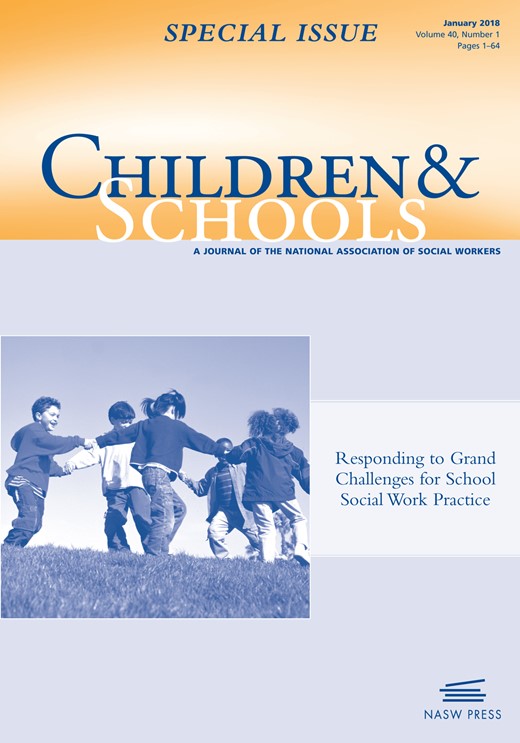-
Views
-
Cite
Cite
Katie Cotter Stalker, Teen Court–School Partnerships: Reducing Disproportionality in School Discipline, Children & Schools, Volume 40, Issue 1, January 2018, Pages 17–24, https://doi.org/10.1093/cs/cdx024
Close - Share Icon Share
Abstract
Reducing disproportionality in school discipline is a grand challenge for school social work. Although the causes of disproportionality in exclusionary school discipline are interrelated and complex, one solution is to introduce alternatives to suspensions and expulsions that discipline students while keeping them engaged in school. The teen court model represents one such alternative. The purpose of this article is to present a conceptual framework for understanding the role of the teen court model in providing an alternative to traditional discipline measures. Specifically, the ROARS framework provides a guide for distinguishing among the different types of teen court programs (that is, diversion teen court programs, disciplinary teen court programs, and hybrid teen court programs) and thereby illuminates the utility of the teen court model as a school discipline alternative. The roles of school social workers in teen court–school partnerships are highlighted.





